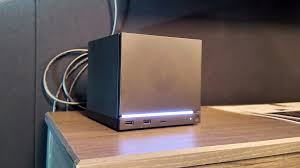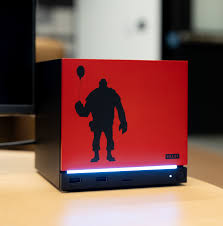Steam Machine: The Game-Changing Future of PC Gaming You Never Expected
“Steam Machine”
Steam Machine: The Game-Changing Future of PC Gaming You Never Expected
In a world where technology evolves faster than ever, the Steam Machine stands as one of the most talked-about innovations in gaming history. Designed to merge the best of PC performance and console convenience, the Steam Machine promised a revolution in how we experience games. But what exactly happened to it? Why did it spark so much hype, and what lessons does it hold for the future of gaming in 2025 and beyond?
Let’s dive deep into the world of Steam Machines, uncover their history, technology, and the potential comeback that could shake the entire gaming industry.

What is a Steam Machine?
A Steam Machine is a hybrid gaming computer developed and promoted by Valve Corporation, the same company behind Steam, the world’s largest digital gaming platform. Unlike traditional gaming PCs, the Steam Machine was built to bring the power of PC gaming into the living room, making it more user-friendly and console-like.
The core idea?
A plug-and-play PC designed to run games through SteamOS, Valve’s custom Linux-based operating system, optimized for gaming performance and controller support.
Essentially, Valve envisioned Steam Machines as the bridge between hardcore PC gamers and casual console players — combining the open flexibility of a PC with the simplicity of a console.
The Birth of the Steam Machine Revolution
The concept of the Steam Machine was officially introduced in 2013, during the golden age of gaming innovation. At that time, Xbox One and PlayStation 4 were dominating the console market, while PC gamers were spending thousands building high-end rigs.
Valve saw an opportunity.
They wanted to break console boundaries and empower players to enjoy PC-level graphics, performance, and freedom without needing to know complex hardware setups.
By partnering with various manufacturers such as Alienware, Origin PC, and Zotac, Valve allowed companies to build and sell Steam Machines in different configurations — from budget-friendly options to ultra-high-performance systems.
It was marketed as the “next generation of gaming PCs.”
The Technology Behind the Steam Machine
What made the Steam Machine so intriguing was its hardware flexibility and software ecosystem. Here’s what powered the innovation:
1. SteamOS – The Heart of the Machine
SteamOS was Valve’s custom Linux-based operating system, designed for performance and speed. It allowed users to:
- Play thousands of Steam games
- Stream Windows games via Steam In-Home Streaming
- Customize the interface for a console-like experience
- Access entertainment apps, browsers, and more
This was a bold move — moving away from Windows dominance toward an open-source gaming world.
2. The Steam Controller
Valve didn’t stop at hardware. They introduced the Steam Controller, an innovative gamepad that mixed the precision of a mouse with the comfort of a console controller. It had dual touchpads, haptic feedback, and customizable layouts — a major leap in control design.
3. Customizable Hardware
Unlike consoles, Steam Machines were built by multiple brands, meaning you could choose your specs — from processors and GPUs to RAM and storage. This made the system future-proof and adaptable for upgrades, a feature console gamers had long desired.
Why the Steam Machine Failed (and What It Taught Us)
Despite all the hype, the Steam Machine didn’t become the global phenomenon Valve envisioned. But its failure wasn’t due to lack of innovation — rather, it was a combination of market timing, pricing, and software limitations.
1. Limited Game Compatibility
Because SteamOS was based on Linux, not all games supported the platform at launch. Many popular AAA titles were Windows-exclusive, leaving players frustrated.
2. Confusing Market Position
Gamers were unsure — was it a console or a PC? The lack of a clear identity made it hard to attract mainstream buyers.
3. High Prices
Some models were more expensive than gaming PCs with similar specs. For many gamers, building a custom PC or buying a console was simply better value.
4. Lack of Marketing Push
Valve relied heavily on the community and tech media for promotion, but didn’t market Steam Machines like Sony or Microsoft did their consoles. This meant it never reached casual audiences.
However, the Steam Machine wasn’t a total loss — far from it. In fact, it paved the way for something even greater.
The Legacy of the Steam Machine
Even though Steam Machines faded from store shelves, the ideas they introduced reshaped PC gaming forever.
Here’s how their influence continues today:
1. Steam Deck: The True Successor
In 2022, Valve launched the Steam Deck, a handheld gaming PC that runs on an evolved version of SteamOS. It combines everything Valve learned from the Steam Machine — open-source gaming, portable hardware, and full access to your Steam library. The Deck became a massive hit, proving the Steam Machine was ahead of its time.
2. Rise of Linux Gaming
Thanks to Valve’s continued investment in Linux and Proton (a compatibility layer), thousands of Windows games now run seamlessly on Linux. This technological evolution began with the Steam Machine project.
3. Hardware Diversity
Today’s gaming ecosystem — from mini-PCs to custom-built consoles — owes a lot to the modular concept introduced by Valve. The idea that you can choose your hardware and still get a console-like experience became the new norm.
Is the Steam Machine Making a Comeback in 2025?
Rumors have been circulating in the tech community that Valve may be revisiting the Steam Machine idea — but with modern technology and refined design.
Imagine a Steam Machine 2.0 powered by:
- SteamOS 4.0 with AI-optimized performance
- Full compatibility with Windows and Linux titles
- Support for 4K gaming and ray tracing
- Cloud gaming and portable synchronization with Steam Deck
If such a system launches, it could dominate both the console and PC gaming markets, especially with Valve’s growing hardware expertise.
With the success of Steam Deck and SteamVR, Valve has shown it’s capable of learning, evolving, and pushing the boundaries of gaming hardware.
Steam Machine vs. Traditional Consoles
Let’s compare how a modern Steam Machine could outshine today’s consoles like the PS5 and Xbox Series X:
| Feature | Steam Machine | PS5 / Xbox Series X |
|---|---|---|
| System Type | Open-source gaming PC | Closed console system |
| Operating System | SteamOS (Linux-based) | Proprietary OS |
| Upgradability | Fully customizable | Limited / None |
| Game Library | Steam (100,000+ titles) | Limited store libraries |
| VR Compatibility | Native SteamVR support | Partial |
| Mod Support | Full mod support | Restricted |
| Streaming Capabilities | In-home + Cloud | Cloud only |
| Price Range | Flexible (depends on build) | Fixed retail price |
It’s clear that the Steam Machine, with modern hardware and support, could redefine value for gamers who crave performance without being locked into a console ecosystem.
The Future of SteamOS and Open Gaming
Valve continues to push toward a Windows-free future, and that could be where the next evolution of the Steam Machine comes into play.
Imagine a device that:
- Runs every major PC game without Windows
- Syncs with your Steam Deck, PC, and VR headset
- Offers a Netflix-style library of games through Steam Cloud
That’s not far from reality — and Valve’s infrastructure makes it entirely possible.
Final Thoughts: Why the Steam Machine Still Matters
The Steam Machine wasn’t a failure — it was a prototype for the gaming revolution we’re witnessing today.
It dared to challenge console giants and sparked innovations that transformed gaming forever.
Today, as gaming becomes more portable, open, and cloud-driven, the Steam Machine’s vision feels more relevant than ever.
It’s not just about playing games — it’s about freedom, customization, and control.
So if Valve ever decides to bring back the Steam Machine, one thing is certain — this time, the world will be ready.

SEO Keywords to Rank:
Steam Machine, Valve Steam Machine, SteamOS, Steam Controller, Linux gaming PC, Steam Machine 2025, Steam Deck vs Steam Machine, PC gaming revolution, Valve console, future of gaming hardware.
